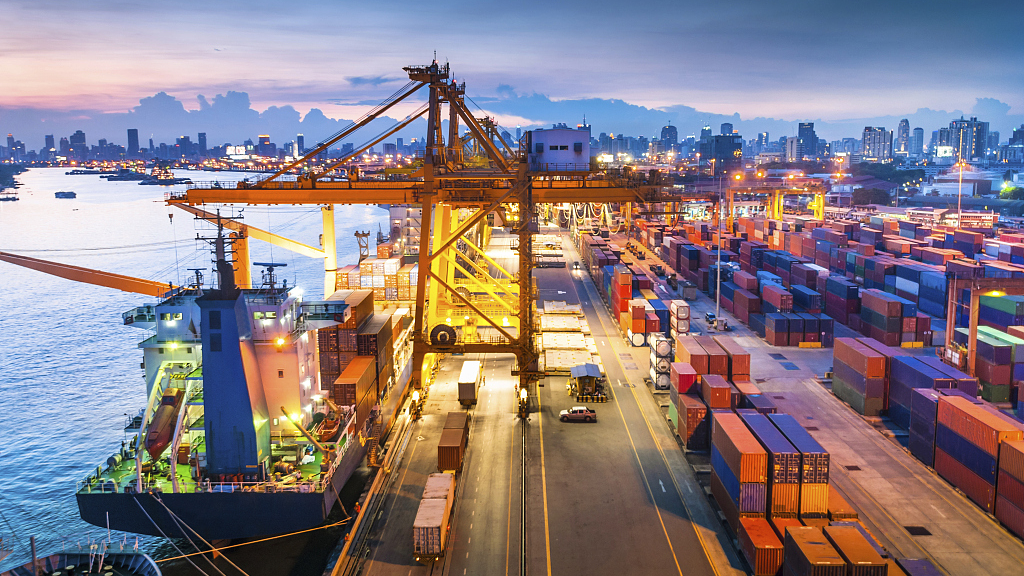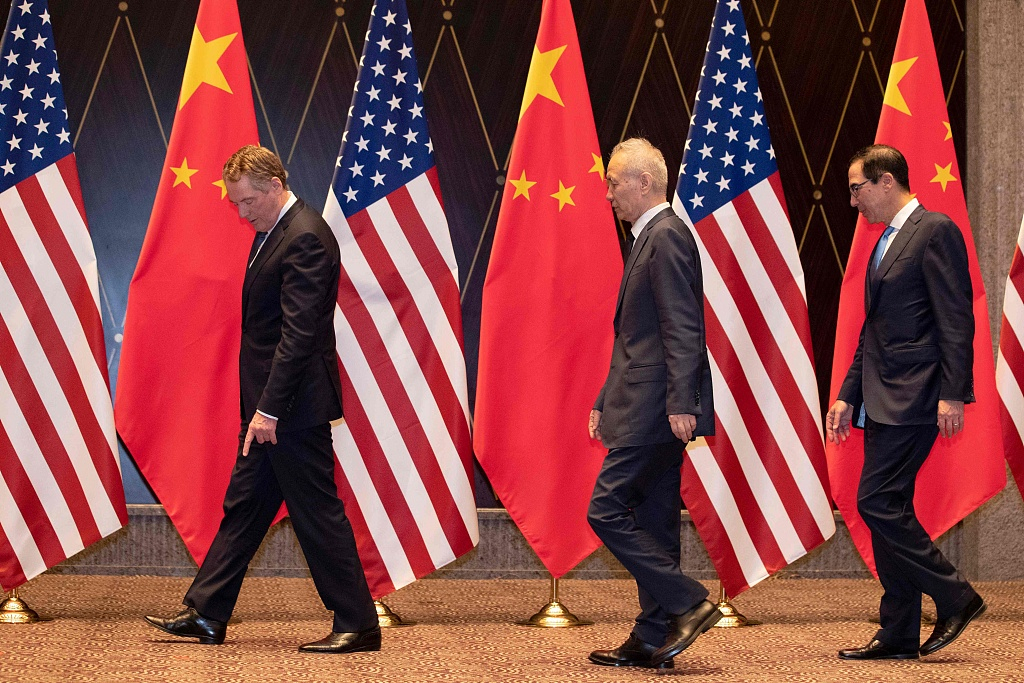

Editor's note: Kong Qingjiang is the dean of the School of International Law at China University of Political Science and Law. The article reflects the author's opinions and not necessarily the views of CGTN.
It is not difficult to find that international trade is now in an awkward position. Today's world is undergoing unprecedented changes: Increasing polarization between the rich and the poor, the spread of non-traditional security issues such as terrorism and cybersecurity, climate change, trade war, and so on. They all call for international order and cooperation within the international community. But the international community is divided.
Several European countries have embraced nationalism, which has been illustrated by the rise of nationalist and even far-right political parties. The United Kingdom, a traditionally liberal country, surprisingly turned to Brexit. However, more notable than Brexit is the U.S. withdrawal from an array of international treaties and institutions. As a result of the switch to nationalism and isolationism, anti-globalization has become trendy in the western world.
Some countries are even acting in ways that sabotage the current international order they had helped establish. For example, in addition to threatening to withdraw from the World Trade Organization (WTO), the United States took advantage of the consensus decision-making mechanism to block the appointment of Appellate Body (AB) members, triggering a crisis of the Dispute Settlement Mechanism of the WTO, the pillar of the multilateral trading system.
Similarly, whenever they feel the current trade norms do accommodate their interests, they have often resorted to the national security exception in their tool kit. On the disguised excuse of national security, the United States levied an additional 25 percent and 10 percent tariff on steel and aluminum imports respectively in early 2018.

U.S. Trade Representative Robert Lighthizer (L) points at markers on the floor as he leads Chinese Vice Premier Liu He (C) and U.S. Treasury Secretary Steven Mnuchin (R) to their positions for a "family photo" at the Xijiao Conference Centre in Shanghai, July 31, 2019. /VCG Photo
According to many international trade lawyers, frequently invoking broader national security claims is akin to opening Pandora's Box because broader security claims would subject a wide range of goods to "legitimated" protectionist action. As a result, the free and open global trading system is at the risk of disintegration. While keeping a close eye on the new role of the emerging powers, major powers are becoming increasingly reluctant to provide public goods in the form of international order.
Amid the desperate cry for joint efforts to save the WTO from the crisis, no WTO reform agenda has been reached, and possibly, none will be achieved in the near future, which means no reform would be initiated soon. The crisis signals that the U.S. has given up its leadership, and responsibility as a leading power in the international trade community and has gone so far as to become a nuisance to the maintenance of international trade norms.
There is an urgent need to save the multilateral trading system. What is needed is a democratic decision-making process in international trade order and curbs to U.S. unilateralism in particular. The U.S. retreat has created a leadership vacuum in the shaping of international order. Strong leadership is needed to replace the inward-looking United States in delivering public good.
The leadership vacuum coincides with the rise of emerging powers like China, whose capacity is also rising. China has been a fervent supporter of multilateralism and the multilateral trading system. The country is so deeply committed to multilateralism that it believes the future of mankind lies in the establishment of a shared future. It is due to this belief that China upholds the Special and Differentiated Rights of developing countries in contrast with the U.S. determination to relinquish it. The country has also opposed the imposition of a new set of rules upon individual members and advocated that trade norms be reshaped through consultation. China has prioritized saving the WTO dispute settlement mechanism. The country's WTO reform proposal also made it clear that new rules on digital trade should be made to facilitate new trade and keep the WTO more relevant.
With the WTO AB is expected to fall apart by the end of 2019, responsible WTO members are expected to act now. It might be the historical mission that China is to undertake!
(If you want to contribute and have specific expertise, please contact us at opinions@cgtn.com.)

Copyright © 2018 CGTN. Beijing ICP prepared NO.16065310-3
Copyright © 2018 CGTN. Beijing ICP prepared NO.16065310-3